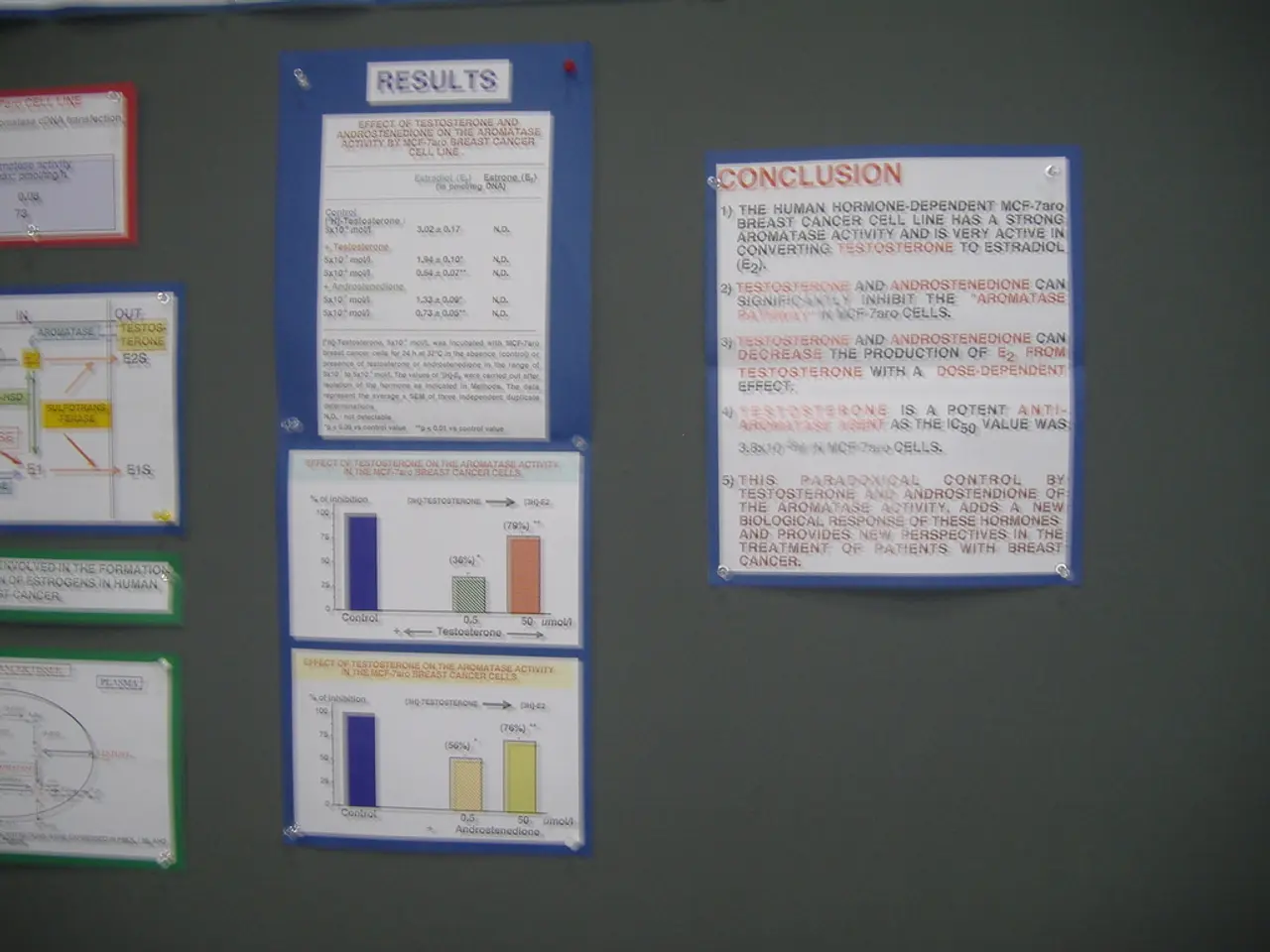Stock Market of Indonesia anticipated to encounter support on upcoming Tuesday
The Indonesia stock market has taken a nosedive in four consecutive sessions, sliding 370 points or a substantial 4.8%. The Jakarta Composite Index (JCI) is hovering just below the 6,790-point barrier, but is poised to open higher on Tuesday. The optimistic forecast for Asian markets stems from an improved outlook for interest rates. Despite a downturn in European markets and a surge in US bourses, Asian markets are expected to mirror the latter's lead.
The JCI experienced a sharp decline on Monday, with losses from financial shares, property corporations, and resource companies pushing it down 120.00 points or 1.74%, ending the day at 6,787.14. Among the top performers, Bank CIMB Niaga dipped 1.49%, Bank Mandiri eased 0.20%, Bank Danamon Indonesia plummeted 2.82%, Bank Negara Indonesia weakened 1.22%, Bank Central Asia sagged 0.86%, Bank Rakyat Indonesia tumbled 1.85%, Indosat Ooredoo Hutchison plunged 3.81%, Indocement cratered 3.64%, Semen Indonesia plummeted 5.60%, Indofood Sukses Makmur declined 1.55%, Astra International slid 1.34%, Energi Mega Persada surged 7.82%, Astra Agro Lestari skidded 1.29%, Aneka Tambang fell 0.31%, Vale Indonesia dropped 4.62%, Timah crashed 8.60%, and Bumi Resources dipped 1.67%.
US stocks are retaining a positive outlook, with all major indices shaking off early weakness and rallying late in the day. The Dow gained 374.96 points or 0.89%, finishing at 42,581.78. The NASDAQ rallied 183.56 points or 0.94%, closing at 19,630.97, and the S&P 500 climbed 57.33 points or 0.96%, wrapping up the day at 6,025.17.
The late surge in US stocks is attributed to comments by the Federal Reserve Vice Chair Michelle Bowman in support of a rate cut as early as July. Citing concerns about job market stability and potential easing of inflationary pressures related to tariffs, Bowman's statements have triggered optimism in the markets. Additionally, hopes of potential tariff reductions between the US and China have contributed to a softer market anxiety.
Market participants had initially started the day with a cautious stance as they awaited Iran's response to the weekend US air strikes on its nuclear sites. In economic news, the National Association of Realtors reported that existing home sales increased 0.8% in May and saw a 6.2% rise in unsold inventory. Despite the monthly increase, yearly existing home sales decreased by 0.7%.
Crude oil prices experienced turbulent fluctuations on Monday, initially surging in response to the US bombing attack on Iran but ultimately plummeting as it seemed unlikely that Iran would block the Strait of Hormuz. West Texas Intermediate crude for August delivery slumped $5.00, or 6.77%, to $68.84 per barrel.
To provide your feedback on this report, please reach out at editorial@our website.
Reflections on Market Dynamics:
Asia's markets are exhibiting a balance of optimism and caution in their outlook as they confront ongoing macroeconomic pressures, particularly those generated by trade dynamics and global economic fluctuations. The favorable interest rate expectations, with central banks like Thailand's Monetary Policy Committee likely to hold rates steady or reduce them, provide a positive stimulus. This rate stability or reduction can bolster equity markets by lowering borrowing costs and encouraging investment. However, ensuring confidence in markets hinges on addressing broader factors such as lingering trade policy shifts and geopolitical instability.
In recent months, Asian stock markets have shown resilience, with positive news on interest rates and economic stimulus being integrated into valuations. Markets like Thailand's have experienced rallies due to constructive geopolitical developments and domestic economic stimulus; however, these rallies may have somewhat plateaued as the information has been largely absorbed.
For investors eyeing the Indonesian market, it is crucial to maintain a long-term perspective and focus on selective stock selection to navigate market volatility. While the region benefits from stable inflation, supportive liquidity conditions, and proactive government policies, it is essential to remain vigilant regarding trade policy uncertainties and geopolitical events. For less developed markets within Asia, including certain segments within Indonesia, investors should be prepared for larger price fluctuations.
Overall, improved interest rate expectations, positive yet tempered recent equity performances, and ongoing attention to trade policies and geopolitical developments support a middle-term, cautiously constructive environment for Asian markets, requiring continued vigilance as conditions evolve.
Investors should be watchful of the Indonesian stock market, as it continues to experience volatility despite showing resilience in recent months. The JCI, Indonesia's stock market index, took a 1.74% nosedive on Monday, with significant declines in financial shares, property corporations, and resource companies.
With US stocks retaining a positive outlook and an optimistic forecast for Asian markets, the Jakarta Composite Index (JCI) is poised to open higher on Tuesday. However, navigating the Indonesian market requires a long-term perspective, selective stock selection, and vigilance regarding trade policy uncertainties and geopolitical events.




